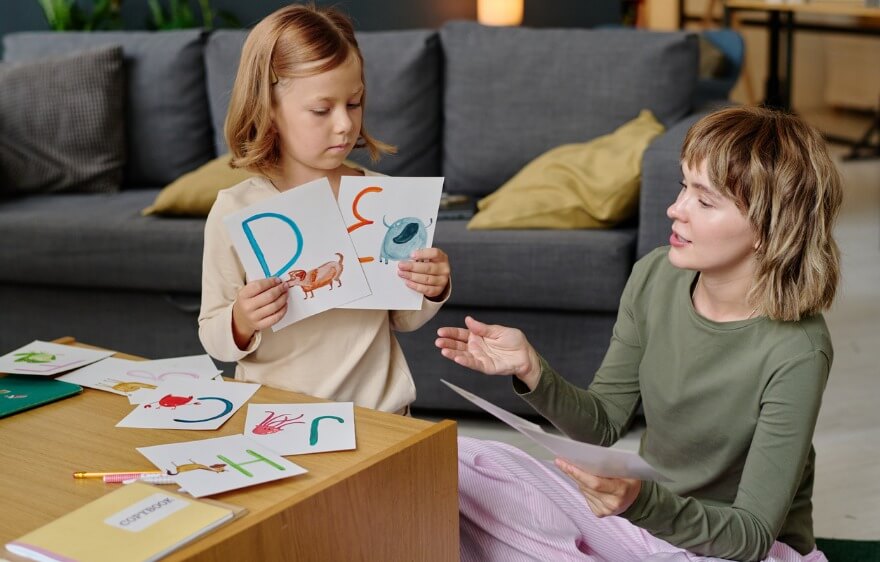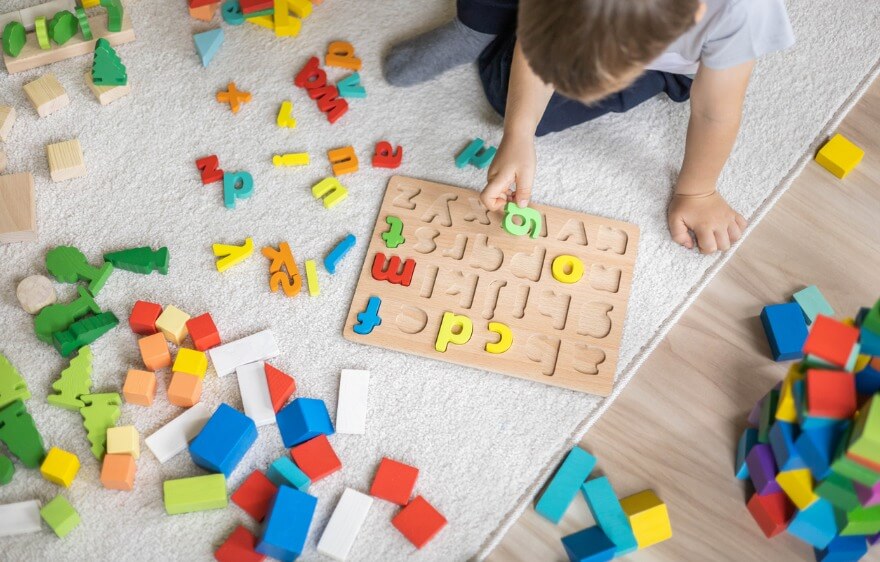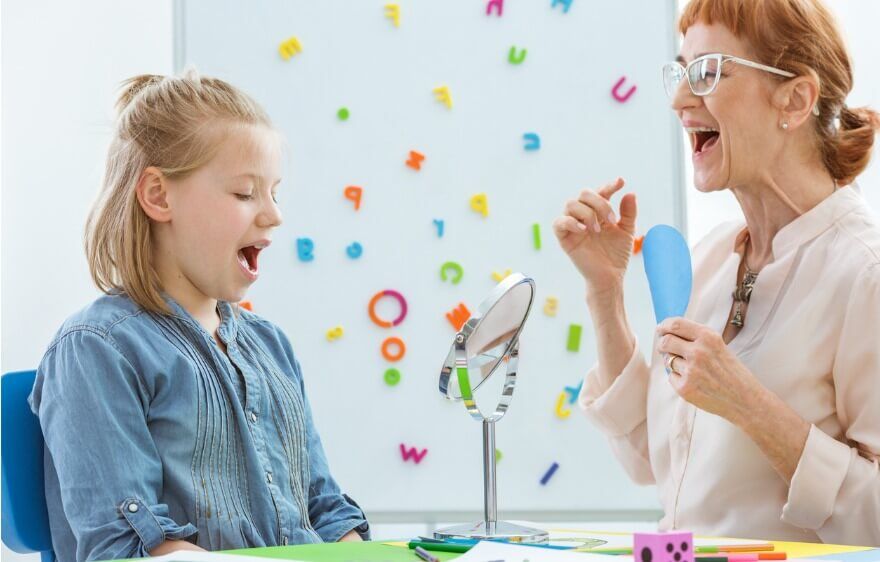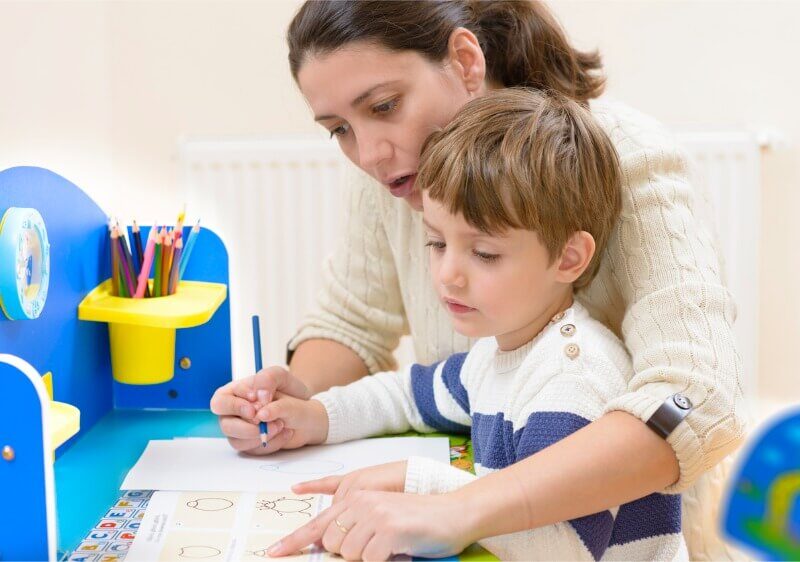What is a speech milestone?
There are few things more exciting than hearing your child hit a new speech milestone! Speech milestones are developmental benchmarks in your child’s language journey. These milestones are the typical skills and abilities your kiddo is expected to achieve at different stages of development. By understanding these milestones, you can celebrate your child’s progress and catch any potential speech or language delays early, ensuring they get the support they need to succeed. Are you ready to help them thrive?
Why Tracking Speech Milestones Is Important
Tracking speech milestones is crucial for several reasons:
- Early Detection of Delays: Monitoring your child’s speech development helps identify any potential delays or disorders early. Early intervention can significantly improve outcomes for children with speech and language difficulties.
- Guidance and Reassurance: Knowing what to expect at each stage provides guidance and reassurance for parents, helping them understand what is typical and when to seek help.
- Supporting Development: Understanding speech milestones enables parents to support their child’s development through activities and interactions that promote speech and language skills.
Speech Milestones
Birth to 6 Months
- Cooing and Gurgling: Your baby will start making adorable cooing sounds and gurgles, especially when they’re happy and content. These sounds are the building blocks of speech milestones.
- Responds to Sounds: Watch as your little one turns their head towards interesting sounds and voices, showing they’re tuning into the world around them.
- Smiles at Voices: Those heart-melting smiles you’ll get when you talk to your baby are signs they recognize and love your voice.
- Different Cries for Different Needs: Your baby will use different types of cries to signal hunger, discomfort, or attention.
- Laughs and Giggles: Your baby will start to laugh and giggle in response to interactions, showing joy and engagement.
6 to 12 Months
- Babbling Begins: You’ll hear strings of sounds like “ba-ba” and “da-da” as your baby starts to experiment with their vocal cords. This babbling is a critical step towards forming words and reaching speech milestones.
- Responds to Name: Around this time, your baby will begin to turn and look when you call their name — a big step in their social development.
- Imitates Sounds: Your baby might start mimicking the sounds they hear, which is a fantastic sign of early speech development and an important speech milestone.
- Understands Simple Words: They will begin to understand simple words like “no” and “bye-bye.”
- Responds to Tone of Voice: Your baby will react differently to a happy, angry, or sad tone of voice, showing their ability to understand emotional cues.
- Uses Gestures: They will start using gestures like waving goodbye or reaching out to be picked up, another key speech milestone.
1 Year
- First Words: Get ready for the magic moment when your baby says their first word! Common first words include “mama” or “dada,” marking a significant speech milestone.
- Understands Simple Commands: They will begin to understand and follow simple instructions, like “wave bye-bye.”
- Uses Simple Gestures: Pointing, waving, and shaking their head are ways your baby will communicate even before they can talk.
- Increased Babbling: Babbling will become more varied and will include more speech-like sounds and intonations, showing progress in speech milestones.
- Recognizes Names of Familiar People and Objects: Your baby will show understanding by looking at or pointing to family members, pets, or favorite toys when named.
- Participates in Simple Games: They will enjoy interactive games like peek-a-boo and pat-a-cake, which also encourage communication and support speech milestones.
18 Months
- Vocabulary Growth: Your child will likely have a vocabulary of around 10-20 words and will use them regularly, a key speech milestone.
- Combines Words: They might start combining two words to form simple phrases like “more milk” or “big truck.”
- Understands More Words: They understand more than they can say and will respond to simple questions and commands, another significant speech milestone.
- Points to Objects: They will point to objects or pictures in a book when you name them, showing their growing comprehension.
- Enjoys Nursery Rhymes and Songs: Your child will show enjoyment and engagement with nursery rhymes, songs, and simple stories.
- Uses Words for Needs: They will start using words to express their needs and wants, such as saying “up” to be picked up, a crucial speech milestone.
2 Years
- Vocabulary Explosion: Around age two, your child’s vocabulary will grow rapidly.
- Follows Simple Instructions: Your toddler will understand and follow simple two-step instructions like “pick up the toy and give it to me.”
- Names Common Items: They will be able to name common objects in their environment, such as “ball,” “cat,” or “car.”
- Starts to Ask Questions: Your child will begin to ask simple questions like “What’s that?” or “Where’s mommy?” demonstrating another speech milestone.
- Plays with Sounds: They will enjoy playing with sounds and words, often creating their own versions of words.
- Uses Pronouns: Your child may begin to use simple pronouns like “me,” “mine,” and “you,” marking another important speech milestone.
3 Years
- Simple Sentences: Your child will start speaking in simple sentences of three to four words, such as “I want cookie,” a significant speech milestone.
- Strangers Understand Speech: People outside the family can understand most of what your child says.
- Answers Questions: They’ll begin to answer simple questions like “What’s your name?” or “Where’s the ball?”
- Uses Plural and Past Tense: They will start using plurals (cats, dogs) and past tense verbs (jumped, played).
- Understands Simple Stories: They will show understanding of simple stories read aloud and can answer questions about them.
- Engages in Conversation: Your child will start engaging in simple conversations, taking turns to speak and respond, another key speech milestone.
4 Years
- Complex Sentences: Expect your child to speak in more complex sentences of four or more words, like “I want to go to the park,” marking an advanced speech milestone.
- Tells Stories: They will start telling simple stories and can describe events that happened during their day.
- Follows Multi-Step Directions: Your child will be able to follow multi-step directions, such as “Put on your shoes and grab your coat.”
- Understands Time Concepts: They will begin to understand basic concepts of time, such as “yesterday,” “today,” and “tomorrow.”
- Engages in Pretend Play: Your child will use more language during pretend play, acting out different roles and scenarios.
- Uses Descriptive Language: They will start using more descriptive language, including colors, sizes, and emotions, another key speech milestone.
5 Years
- Conversational Skills: By age five, your child will have the ability to engage in back-and-forth conversations and will use more detailed sentences, an important speech milestone.
- Grammar and Pronunciation: Their grammar and pronunciation will become more refined, and they will use correct verb tenses and sentence structures.
- Tells Detailed Stories: They will be able to tell more detailed and coherent stories, including more complex ideas and events.
- Understands and Uses Descriptive Language: Your child will understand and use more descriptive language, including adjectives and adverbs, to express their thoughts and feelings.
- Follows Group Conversations: They will be able to follow and participate in group conversations, understand the flow of dialogue, and take turns speaking.
- Expresses Ideas and Feelings: Your child will be able to express their ideas and feelings clearly, using a wide range of vocabulary, another advanced speech milestone.
Watching your kiddo achieve these speech milestones is an exciting and joyous experience! Each step in their speech development opens up new ways to connect with the world and express themselves. If you ever have concerns about your child’s speech and language development, don’t hesitate to reach out to a speech-language pathologist for guidance and support. Celebrating each speech milestone, no matter how small, will help foster a positive environment for your child’s ongoing communication growth.
What To Do if Your Child Is Not Hitting Speech Milestones
If your child is not meeting expected speech milestones, consider the following steps:
- Consult with a Pediatrician: Your child’s pediatrician can provide an initial assessment and determine if further evaluation is necessary.
- Seek a Speech Language Pathologist: A speech language pathologist (SLP) specializes in diagnosing and treating speech and language disorders. At Care Options for Kids, our therapists provide comprehensive evaluations and create tailored intervention plans.
- Early Intervention Services: Many communities offer early intervention programs that provide support and services for children with developmental delays.
- Encourage Communication at Home: Engage your child in activities that promote speech and language development, such as reading aloud, singing, and talking about daily activities.
Our Speech Therapists Can Help
Could your child benefit from speech therapy? Consider consulting with a Care Options for Kids pediatric speech language pathologist to help them meet their milestones. They can assess your child’s needs and develop a customized therapy plan to support their communication skills and overall development. Speech therapy can enhance your child’s life and help them reach their full potential. It’s time to watch your child excel!
Schedule Your Child’s Care Assessment Today
At Care Options for Kids, we understand the unique challenges of caring for a child with health conditions. Our dedicated team of pediatric home health nurses is here to support your family with compassionate, expert care tailored to your child’s needs. Contact us today to schedule an assessment and learn how we can help you navigate this journey with confidence and care.
Click here to start your journey to better care.
This post is for educational and informational purposes only. You should always speak with your own therapist before implementing this information on your own.






